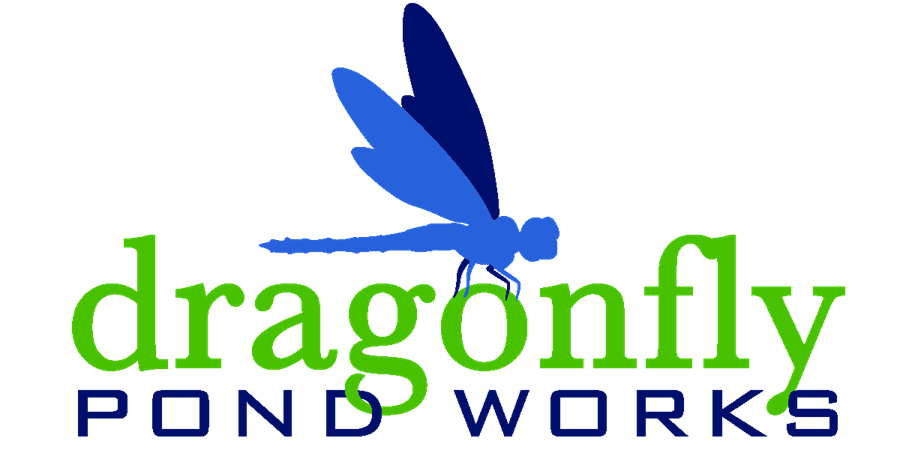Constructed Wetland in Stormwater Management
Morrisville, NC large constructed wetland.
Park West Village in Morrisville, North Carolina is a mixed-use development in the heart of the Research Triangle. The property features residential, commercial, office, and hospitality space. A development of this magnitude is required to have a large (6 acre) constructed wetland feature that filters runoff and prevents flooding. The developers, in conjunction with the Town of Morrisville, placed this wetland at the center of the property, surrounded by greenway trail. As such, this system needed to add significant aesthetic value for residents and visitors.
Pickerel Weed, a native aquatic plant, is beneficial to stormwater management. Pickerel Weed has been planted throughout the wetland.
Dragonfly Pond Works is experienced in creating and managing constructed wetlands. One of the most important features of a lake or pond is aquatic plants. Aquatic plants absorb pollutants entering the water, preventing the pollutants from reaching nearby lakes and streams. The right plants also create habitat for bees, dragonflies, and butterflies. Importantly, beautiful blooms add great aesthetic value to the landscape. Dragonfly Pond Works took steps to assure that this prominent constructed wetland became the focal point of the property.
Constructed Wetland: Year by Year
Year 1, immediately after planting (June 2015): It is important to plant the right aquatic plants very early in the life of the pond. It is also important to eliminate and control invasive plants from the beginning. Invasive plants can quickly overtake healthy plants and compromise system functionality.
Year 2: During the first and second year, our client invested in additional aquatic plants. We also provided aggressive and detailed invasive weed controls. In-depth knowledge of aquatic plant management is necessary.
Year 3: The plants continued to flourish.
The thriving aquatic plants attract dragonflies, which eat mosquitoes! This constructed wetland also provides a natural habitat for wildlife. Visitors and residents are able to enjoy this visually pleasing area, adding value to the Park West Village community.
Year 1
Today
An important aspect of our conversion process is establishing a maintenance program. For the constructed wetland to properly function, the right plants need to thrive while invasive plants are controlled. This requires a specialized stormwater maintenance team for accurate plant identification. Landscaping crews may unknowingly eliminate beneficial plants or leave invasive plants in place. We continue to provide maintenance years after the initial construction. Proper maintenance will allow this system to be a healthy sanctuary enjoyed long into the future. At Dragonfly Pond Works, we create and maintain beautiful spaces. Please contact us to learn how we can help your aquatic space.
Learn More
Dragonfly Pond Works provides constructed wetland, lake, and pond management, stormwater management, and more in Raleigh, Durham, Charlotte, Wilmington, North Carolina, Myrtle Beach, Charleston, Columbia, South Carolina, Tampa, Sarasota, Naples, St. Petersburg, Fort Myers, Florida, and Atlanta, Georgia.
Learn about our low-impact dredging services through this Charlotte pond restoration case study. Read about our use of Integrated Pest Management as part of a comprehensive pond maintenance plan.
Like/Follow us on Facebook, Twitter, Instagram, and LinkedIn for news, events, engaging photos, puns, giveaways, and more!







